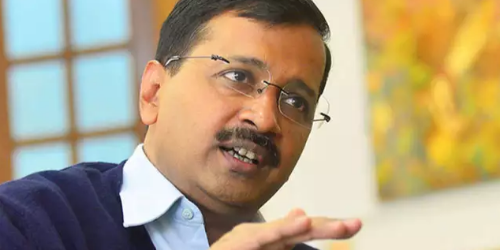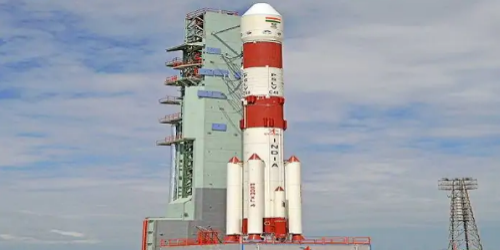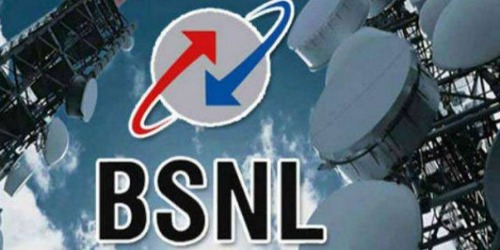India leads the world with 67% of total internet shutdowns

In an unprecedented move, the Indian government suspended mobile internet services in parts of the capital New Delhi on Thursday, as protests over a citizenship bill seen as discriminating against Muslims escalated.
As of 2018, India led the world in internet shutdowns, according to a report by internet advocacy group Access Now, accounting for 67% of the total recorded worldwide.
An internet shutdown is a suspension of internet access ordered by the authorities. Telecoms companies then turn off the cellular networks at transmitting towers providing mobile phone internet services in the area.
Countries with far more restrictive control over the internet, such as China and North Korea, did not feature prominently in the numbers compiled by Access Now because of the lack of publicly accessible data, the group noted.
Since January 2012, there have been 373 halts in India's internet service, according to the Software Freedom and Law Center (SLFC), which has been tracking the suspensions since then.
India's Home Ministry referred Reuters' inquiries about internet shutdowns to the Information and Broadcasting Ministry, which in turn referred questions to the Ministry of Electronics and Information Technology. The latter ministry said such shutdowns were a matter for local police departments.
Delhi is not the only state to have its internet cut off due to protests over the bill, which makes it easier for non-Muslim minorities from Afghanistan, Bangladesh and Pakistan who settled in India before 2015 to obtain Indian citizenship.
Assam, Tripura, Meghalaya, Arunachal Pradesh and parts of West Bengal, Karnataka and Uttar Pradesh have also experienced shutdowns in response to protests.
Shutdowns aren't always statewide. Some, such as the one in Delhi, are instituted across a few districts for a short period.
State governments take this step when they believe it is necessary to maintain law and order. Most of Jammu and Kashmir has had no internet service for more than four months, after the Indian government clamped down on communications following the revocation of the state's autonomy on Aug. 5.
In total, the Jammu and Kashmir region has had 180 shutdowns since 2012, accounting for nearly half of the country's suspensions.
The SLFC lists a variety of reasons for the suspension of internet services gathered from government orders and media reports. The reason given most often is that it is a preventative measure, imposed in anticipation of a breakdown in law and order.
The maintenance of law and order was not the only reason stated for shutdowns. In some states, including Rajasthan, the internet has been halted to prevent cheating during exams.
- 0
- Leave a comment
Anti-CAA protest: Kejriwal launches free WiFi scheme amid internet shutdown in parts of Delhi

Delhi Chief Minister Arvind Kejriwal launched a free WiFi scheme on Thursday and said it was paradoxical that internet services were shut by authorities on this day due to protests against the amended Citizenship Act in the city.
Kejriwal said the people in the country were "scared" as 70 per cent of them have no documents to prove their citizenship.
There was no need of the amended citizenship law and the government needs to focus on providing jobs to the youth, he said.
Telecom operators on Thursday suspended internet, voice and messaging services in parts of Delhi-NCR following instructions from the police in the wake of protests against anti-Citizenship Amendment Act.
The chief minister expressed concern that the law and order situation, not only in Delhi, but the entire country was "deteriorating" day by day.
"There is a fear among all the citizen, not just Muslims, that they will have to prove their citizenship and show documents. Seventy per cent people, specially poor, have no document to show and they fear that they will be evicted from the country, he said.
The Citizenship (Amendment) Act (CAA) is not going to achieve anything, he said.
Kejriwal said the Aam Aadmi Party government has fulfilled all promises that it made with the people of Delhi in the 2015 Assembly elections.
"Delhi will become the first city in the world to have free WiFi services," he said.
Deputy Chief Minister Manish Sisodia also launched the scheme at Kashmiri Gate Metro station. The free Wifii service will be provided through over 11,000 hotspots at bus stands and other places, including markets and residential colonies.
Over 100 hotspots will be inaugurated on Thursday and all the hotspots will be operational in the next six months, Kejriwal said.
ISRO launches spy satellite RISAT-2BR1 aboard 50th PSLV mission

The Indian Space Research Organisation's PSLV-C48 successfully launched from Sriharikota with India's radar imaging earth observation satellite RISAT-2BR1 and nine foreign satellites on board. Notably, this launch marks the 50th flight of Indian space agency's workhorse rocket PSLV and the 75th vehicle mission from Sriharikota.
With clear weather at the designated launch time, the 44.4 metre tall rocket lifted off at 3:25 pm from the first launch pad of the Satish Dhawan Space Centre. It was a PSLV-QL variant with four strap-on boosters and a combined propellant load of 48 tonnes. This was the second space trip for this rocket variant.
Among the payload of PSLV-C48 is the 628 kg RISAT-2BR1 satellite with advanced imaging apparatus. These capabilities are meant for applications in various fields like agriculture, forestry and disaster management support. It would also serve military purposes, PTI quoted ISRO sources as saying. This satellite will be placed into an orbit of 576 km at an inclination of 37 degree and will have a life of five years.
Among the remaining satellites, six are from the United States and one each from Italy, Japan and Israel. These satellites are -- USA's multi-mission Lemur-4 satellites, technology demonstration Tyvak-0129, earth imaging 1HOPSAT, Israel's remote sensing Duchifat-3, Italy's search and rescue Tyvak-0092, and Japan's QPS-SAR - a radar imaging earth observation satellite. According to ISRO, these international customer satellites are being launched under a commercial arrangement with NewSpace India Limited (NSIL).
This mission is expected to complete in around 21 minutes after placing the last of the customer satellites into orbit. The rocket, after 16 minutes of launch, will sling RISAT-2BR1 towards its orbit and start ejecting other nine customer satellites a minute later. The ISRO has placed 310 foreign satellites into orbit so far.
Google launches Nest Mini smart speaker for Rs 4,499

Owing to the popularity and fast adoption of smart speakers in India, Google too is expanding its #madebyGoogle offerings in India. A few months after the Nest Hub launch, Google has now announced the availability of Nest Mini smart speaker. Priced at Rs 4,499, the Nest Mini competes directly with the Echo Dot range from Amazon.
The Nest Mini continues to have the same design as the Home Mini with a fabric covering. However, the fabric covering on the new Nest Mini is made from 100 per cent post-consumer recycled plastic bottles. The external enclosure is also made from 35 per cent post-consumer recycled plastic. Google says a single half-litre plastic bottle makes enough fabric to cover more than two Nest Mini devices. It also features three far-field microphones, capacitive touch control, mic switch button and a wall mount.
Google claims to have worked on the innards as it houses a dedicated machine learning chip, with up to one TeraOPS of processing power. Using the chip, Nest Mini will be able to learn the most common commands and process them locally for faster response time. This feature has been launched in the US and will soon be available in India.
According to the company, the Nest Mini comes with a completely re-engineered Google Assistant. It can be used to control compatible smart home devices from brands such as Philips, TP-Link, Xiaomi and more. It is powered by Quad-core 64-bit ARM CPU 1.4 GHz and can be paired using the Google Home app available for iOS and Android platform. The Nest Mini supports Bluetooth and Wi-Fi connectivity.
Focussing on sound output, Google has also upgraded the hardware and software to make it sound better and offers bass that's twice as strong as the original Google Home Mini (measured from 60-100 Hz at maximum volume). A proprietary audio tuning software has been developed by Google's expert audio engineers. It is also said to bring improved ability to operate in noisy environments. Google says that "the Assistant will automatically modulate the output sound according to the background noise in the room. It can also sense proximity to light up the LED as soon as the user's hand gets close to the device, guiding where to tap and adjust the volume".
Users will be able to connect multiple Google or Nest speakers to build a sound system for their entire home. They will also have an option to transfer music or podcasts from the phone to the speaker. Nest Mini supports both English and Hindi.
BSNL employees to go on strike today, allege company of forcing voluntary retirement scheme

BSNL employee unions have alleged that the management is forcing personnel to opt for voluntary retirement scheme (VRS) by creating a fear psychosis and have called for pan-India hunger strike on November 25.
The unions, representing more than half of BSNL employees, have alleged that the management is threatening employees of reduction in retirement age to 58 years and far away postings if the employees don't opt for VRS, All India Unions and Associations of Bharat Sanchar Nigam Limited (AUAB) Convenor P Abhimanyu told PTI on Sunday.
"We are not opposing VRS. Those who want and think it is beneficial for them should opt for it. It is not beneficial for lower level employees and they are being threatened to take VRS, else retirement age will be reduced to 58. It is a forced retirement scheme, therefore we are going on a hunger strike on Monday," Abhimanyu said.
The unions, in a notice for hunger strike, have alleged that those opting for VRS will not be able to apply for pension commutation, which is one-third of pension amount payable over 15 years in advance, only after attaining the age of 60 years.
"In case of any casualty, a person will not be able to apply for pension commutation. His family will get only family pension which is very less. Those who opt for VRS will not be able to claim benefit of the third pay revision. ... With 4G services starting soon and the proposed tariff hike in the sector, BSNL will become eligible for the third pay revision," Abhimanyu said.
He alleged that banks few years back offered better VRS compared to the scheme offered by BSNL, which is not lucrative.
"If management stops threatening employees, the number of employees opting for VRS will significantly come down," Abhimanyu said.
According to BSNL Chairman and Managing Director P K Purwar, over 77,000 out of around 1.6 lakh employees of the loss-making telecom firm have opted for VRS.
According to the plan, all regular and permanent employees of BSNL, including those on deputation to other organisations or posted outside the corporation on deputation basis, who attended the age of 50 years or above are eligible to seek voluntary retirement under the scheme.
The amount of ex-gratia for any eligible employee will be equal to 35 days salary for each completed year of service and 25 days salary for every year of service left until superannuation.
Employees' benefit accounts for 75-80 per cent of total revenue earned by the company annually. BSNL is looking at a savings of about Rs 7,000 crore in wage bill, if 70,000-80,000 personnel opt for the scheme.


